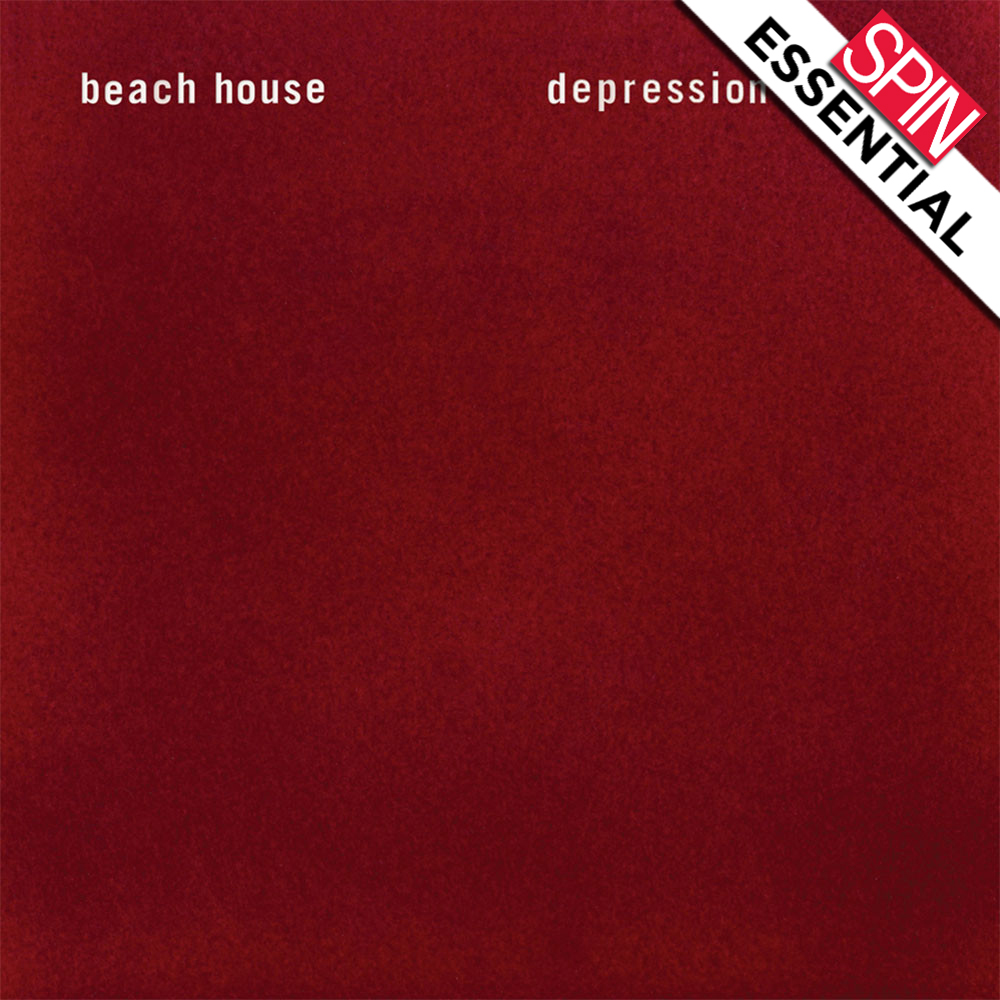Release Date: August 28, 2015
Label: Sub Pop
Virtually every interview that’s been published about Beach House since their inception in 2004 has this moment of intense awkwardness, when Victoria Legrand and Alex Scally balk at the exercise of trying to translate their music into words. A recent profile describes their struggle to even explain the title of their new record, Depression Cherry: They “decline to explain, then explain that it can’t be explained.” It’s almost just as well that the Baltimore-based duo have a hard time talking about their music. The soupy fog of stoned soughs, rustling slide guitar, and general discontent always seemed to reside in a realm that’s pre-language anyway. Legrand’s abstract lyrical vagaries included, theirs is a world before signs and signifiers — a blank canvas before everything crystallizes into sharp divisions of bad and good, a place of psychedelic borderlessness where every feeling’s just a little heightened.
But for all their reticence in interviews, Legrand’s more willing to lay out her intents on record. On autumnal opener “Levitation,” the 34-year-old sets out a mission statement of sorts, after singing a bit about growing older and seeing the trees’ branches “hang lower now,” she says she “want[s] to take you to a place / Where the unknown surrounds you.” And that’s what she does throughout, as walls of amorphous synthesizer and guitar parts drift and swell like plastic bags in the wind, she spews beautifully indistinct sucker punches like “If this ice should break / it would be my mistake.” These are seemingly meditations on love and loss and all the circumstances that might lead one toward self-reflective melancholy, but their outlines are just fuzzy enough for you to project your own baggage onto them. Her lyrical net is wide enough to snare your own heartbreaks, disappointments, and depressions.
Their approach to instrumentation is similarly vague in its intent, wide swaths intended to overwhelm and crush out. On 2012’s Bloom, the duo blossomed out of distant monochromes of earlier efforts into a delicately sunlit land of Malick-ian wonder, gently plinking guitar lines flickering like lens flares. Three years later, they’re back in that same cinematic universe, production-wise. Keyboard lines on lead single “Sparks” seep into the mix like laughing gas, and Scally’s crackling guitar work threatens to ignite the whole thing, but it never does. It’s like punctuation on points never proved — the original texts have faded, but the annotations remain. It feels important, even if every gesture is suggestive rather than demonstrative and every lyric a riddle.
Even when it’s scaling emotional peaks, or when a creaking drum machine threatens to topple them over, Depression Cherry remains the purest picture of serenity, or at least austerity, its twin emotion of opiated gravity. Forebears like Cocteau Twins and Slowdive remain the easiest comparisons of emotional blank slates, but neither landmark band was ever all-consuming as the placidity of Depression Cherry. Other dream-pop albums were gauzy, but this is gauze, made to wrap your emotions up tight and mummify them, with time. It’s an approach they’ve taken time and again, but Depression Cherry‘s particular non-specifics feel as full of breath and life as anything they’ve ever done — an album-length sigh as eloquent as a manifesto.





